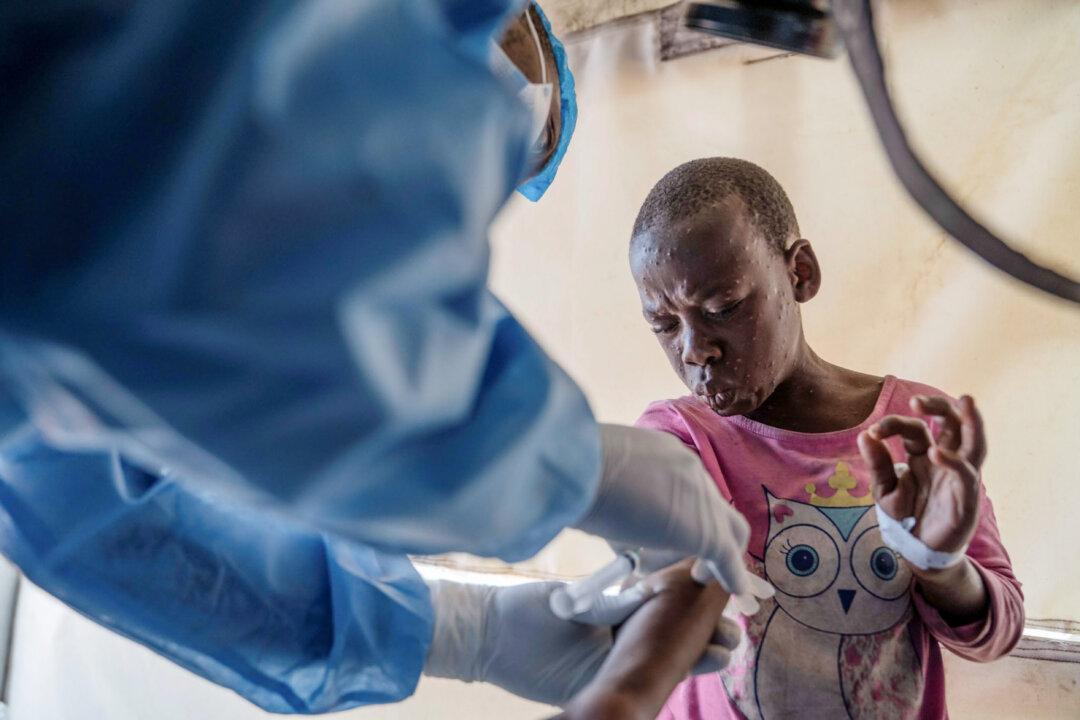The Democratic Republic of the Congo (DRC) will receive $9.5 million from the Global Fund to Fight AIDS, Tuberculosis, and Malaria to aid its emergency response to the latest deadly outbreak of mpox—also known as monkeypox—in the country, according to the financing organization.
The funding will support the DRC in its response efforts in six of the highest-transmission provinces—Equateur, Sud-Ubangui, Sankuru, Tshopo, Sud-Kivu, Nord-Kivu—as well as in Kinshasa, which is home to 17 million people, the Global Fund said in a Sept. 18 statement.




